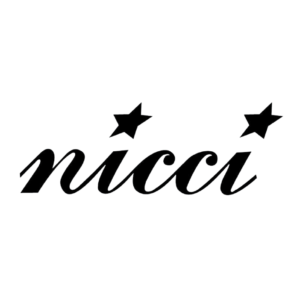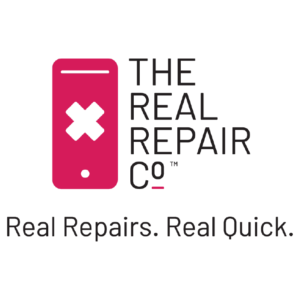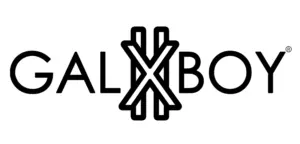Do you want to keep your brilliant business idea on the shelf due to a lack of funds? We didn’t think so! Funding is the lifeblood of any startup, and getting it right could make or break your business. However, with the right approach and knowledge, you can overcome this hurdle and secure the startup business funding you need to get your idea off the shelf and into the real world.
In this blog, we’ll explore how you can secure funding for your startup business. Whether you’re looking for angel investors, crowdfunding, traditional bank loans, or stopgap funding, we’ve got you covered.
So, if you’re ready to take your business idea to the next level, sit tight, grab a cup of coffee, and let’s crack the code!
Fuel Your Business Dreams: Explore the Different Types of Startup Business Funding
Starting a new business is like embarking on a thrilling adventure. However, every adventurer needs fuel; for entrepreneurs, that fuel comes in startup funding. Without it, the journey can halt before it even begins. The good news is there are plenty of funding options available to small business startups! From government funding options to private sector funding options, the possibilities are endless. Let’s explore them!
Government startup business funding
Government funding options can be great for startups looking for low-interest loans and grants. Here are some of the most common types of government funding options:
- Small Business Administration (SBA) Loans: The SBA provides loans to small businesses through participating banks, with the SBA guaranteeing a portion of the loan to the lender. This reduces the risk for lenders, making it easier for small businesses to secure funding. Other advantages include lower interest rates, longer repayment terms, and flexible loan amounts. However, SBAs have strict eligibility criteria, lengthy application processes, and collateral requirements.
- Grants: Government grants are often aimed at specific industries or types of businesses and typically require a detailed application process. However, your funds can be used for various purposes – which comes with a great advantage. Cons include strict eligibility criteria, limited funding, and a lengthy application process.
- Tax Incentives: Government tax incentives are designed to help small businesses save money on their taxes, which allows them to invest more in their businesses. Pros include cost savings and flexible use of funds, However, you can expect strict eligibility criteria and complex tax codes.
Private sector startup business funding
Private sector funding offers significant financial support to startups, often in exchange for equity or ownership in the company. Here are some of the most common types of private sector funding options:
- Angel Investors: Angel investors are typically wealthy individuals who fund startups in exchange for equity or ownership in the company. This type of funding includes quick access to cash flow, flexible terms, and mentoring opportunities. On the contrary, you have to give up equity in the company. This means you lose complete control over the business, which can have its downfalls.
- Venture Capitalists: Venture capitalists are institutional investors who provide funding to high-growth potential startups in exchange for equity or ownership in the company. Pros include significant funding amounts, industry connections, and mentoring opportunities. However, it does require giving up equity in the company, high expectations for growth, and pressure to perform.
- Crowdfunding: Crowdfunding involves raising small amounts of money from many people, typically through online platforms. It includes access to a large pool of potential investors and no need to give up equity or ownership. However, some pitfalls include marketing the business effectively to attract investors, limited funding amounts, and fees charged by crowdfunding platforms.
- Bootstrapping: Bootstrapping involves using personal savings and revenue generated by the business to fund operations. You have complete control over the business, no debt obligations, and low costs. Unfortunately, bootstrapping has limited funding amounts, slow growth, and the need for a solid business plan and financial management skills.
When considering which funding option to pursue, it’s essential to evaluate the specific needs of your business and the trade-offs of each option.
Revolutionizing Startup Business Funding: The Innovative Stopgap Funding by Payflex and Merchant Capital
Are you tired of jumping through hoops to secure startup business funding from government or private lenders? Look no further than the innovative solution offered by Payflex and Merchant Capital – flexiadvance.
This groundbreaking funding option is tailored specifically for small businesses like yours. We provide a stopgap solution to help you achieve your goals and grow your business. Say goodbye to complicated applications, long wait times, and strict lending criteria. Flexiadvance is designed to be accessible and flexible, giving you the support you need when you need it.
The application process is quick and straightforward, so you can get the funding you need without the hassle. Additionally, the repayment terms are flexible and can be tailored to suit your specific circumstances to give you the peace of mind to focus on running your business.
Here’s how you sign up:
- Apply through the Payflex portal
- Your flexiadvance offer will arrive in your inbox
- Customise the offer according to your business needs
- Sign off on your fully digital contract
- Receive your startup business funding in under 24 hours
Conclusion
With countless startup business funding options, making a set-in-stone decision can take a lot of work. It’s crucial that you do your research and establish which one will dovetail with the make-up of your business. However, if you’re looking for something to give you the kickstart you need without complications – you should partner with Payflex. With industry-leading payment gateways, exceptional stopgap funding and many other remarkable resources, we could be your partner in crime! Not actually, but you know what we mean!
We wish you the best of luck with your business ventures.































































